Walima: The Cosmology of Art and Food
Walima: The Cosmology of Art and Food
Side Events
Medrar for Contemporary Art
-
We announce “Walima: The Cosmology of Art and Food”
“Walima” presents a series of events, discussions, performances, and workshops that explore the relationship between artistic practices and food, considering its cultural significance, social connections, and its role as a creative practice. Approaching Cooking as an art form, creating a space for experimentation where food and art function as cultural and social tools.
“To my father, my inspiration and the first one to introduce me to the magic of the kitchen. He is my first teacher in the culinary arts and the greatest person with whom I’ve shared moments of food, as we explored many restaurants together. A salute to my father, the unsung hero who has always been, and still is, the most interesting and inspiring man in my life” Mohamed Abo Gabal – Curator of Walima program

Haneen’s Kitchen – Hummus Workshop
The workshop traces the journey of hummus from its origins in Gaza to its presence in Palestinian cuisine today, shaped by historical transformations and trade routes such as the Via Maris. It considers cooking as a practice entangled with identity, where hummus remains an assertion of continuity amid displacement and oppression. Through a critical engagement with culinary traditions as both sites of continuity and rupture, the session reflects on the ways food holds histories of survival, adaptation, and resistance.
Workshop date: Saturday, 8th of March, 2025 – from 9:00 – 10:30 PM
Fee: 100 EGP
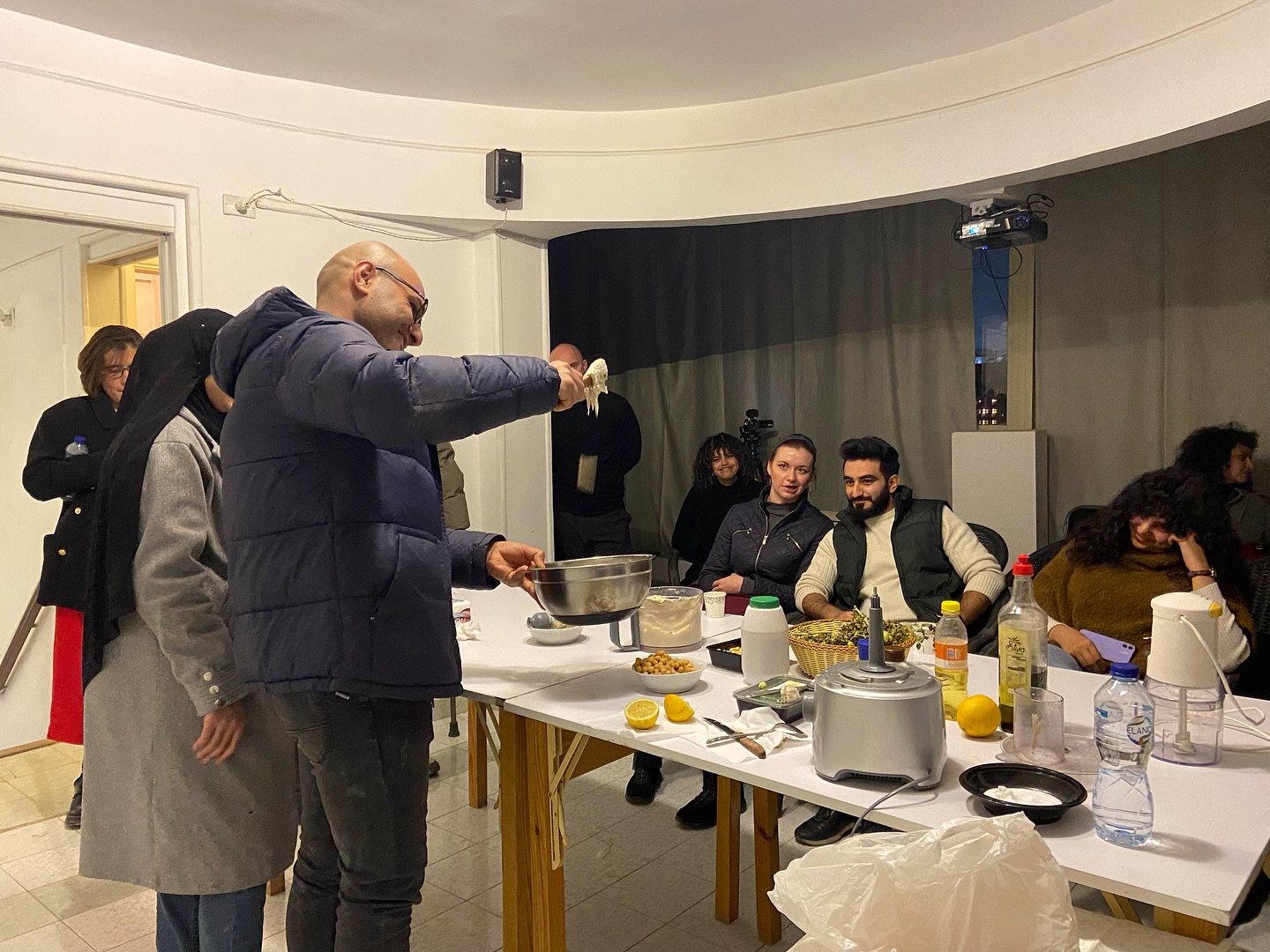

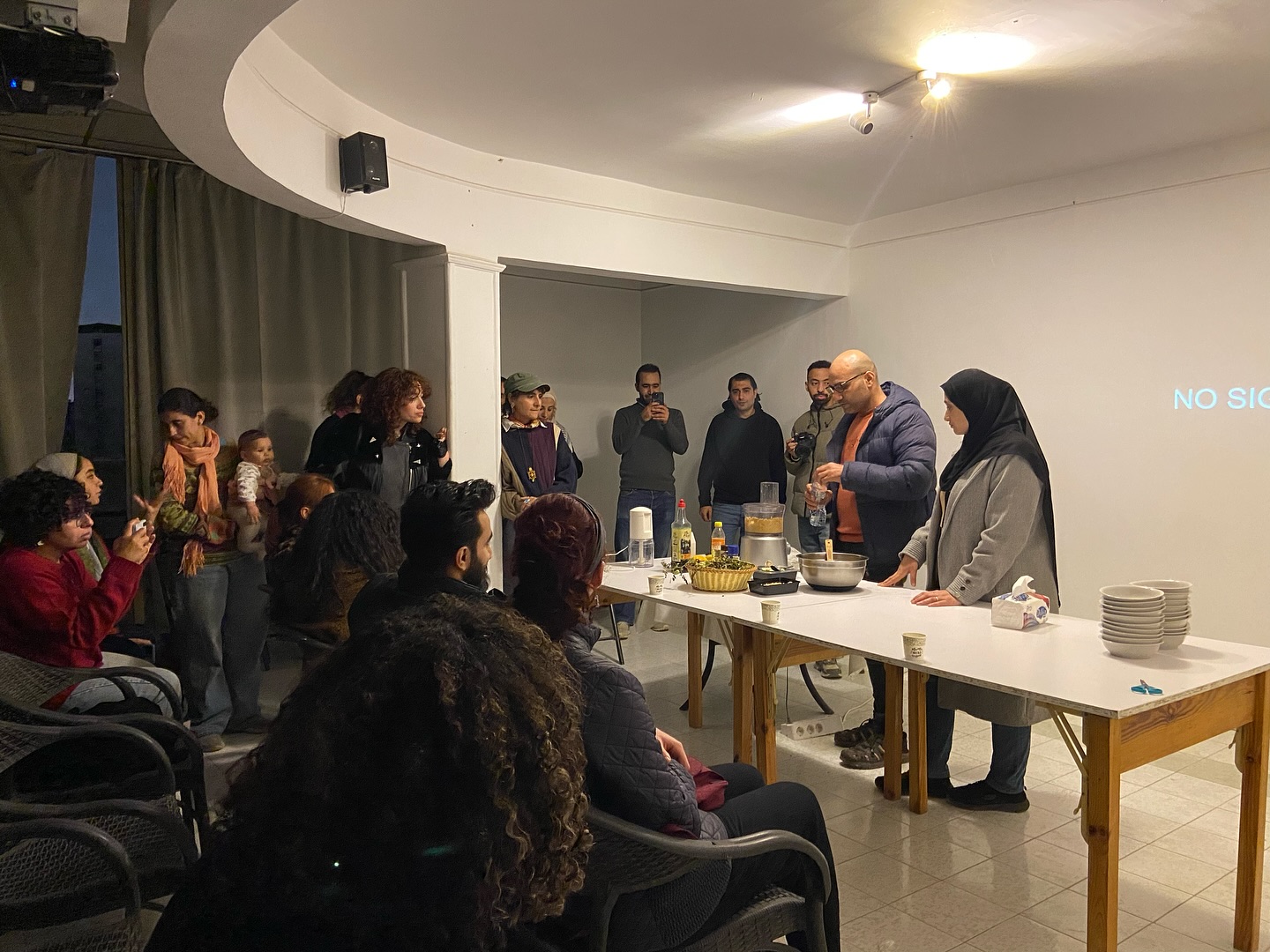


The Art & Engineering of Pasta, a talk by Monia Gobba
Join us for a visual and audio-driven exploration of Egypt’s pasta history. Through archival stories, factory floorplans, engineering drawings, and recorded voices, we’ll uncover the journey of Nani Pasta Factory, founded in 1953. Discover how local innovators reverse-engineered pasta machines to make mass production possible and see how packaging evolved to protect and showcase different pasta shapes. This is a look at the intersection of industry, design, and tradition—told through the machines, materials, and people who shaped it.
About Monia Gobba: A graphic designer and researcher that works with objects and documents of different disciplines and people and places to tell stories through publications, workshops and research initiatives.
Join us on Tuesday, 11th of March 2025, at 9 PM in Medrar.


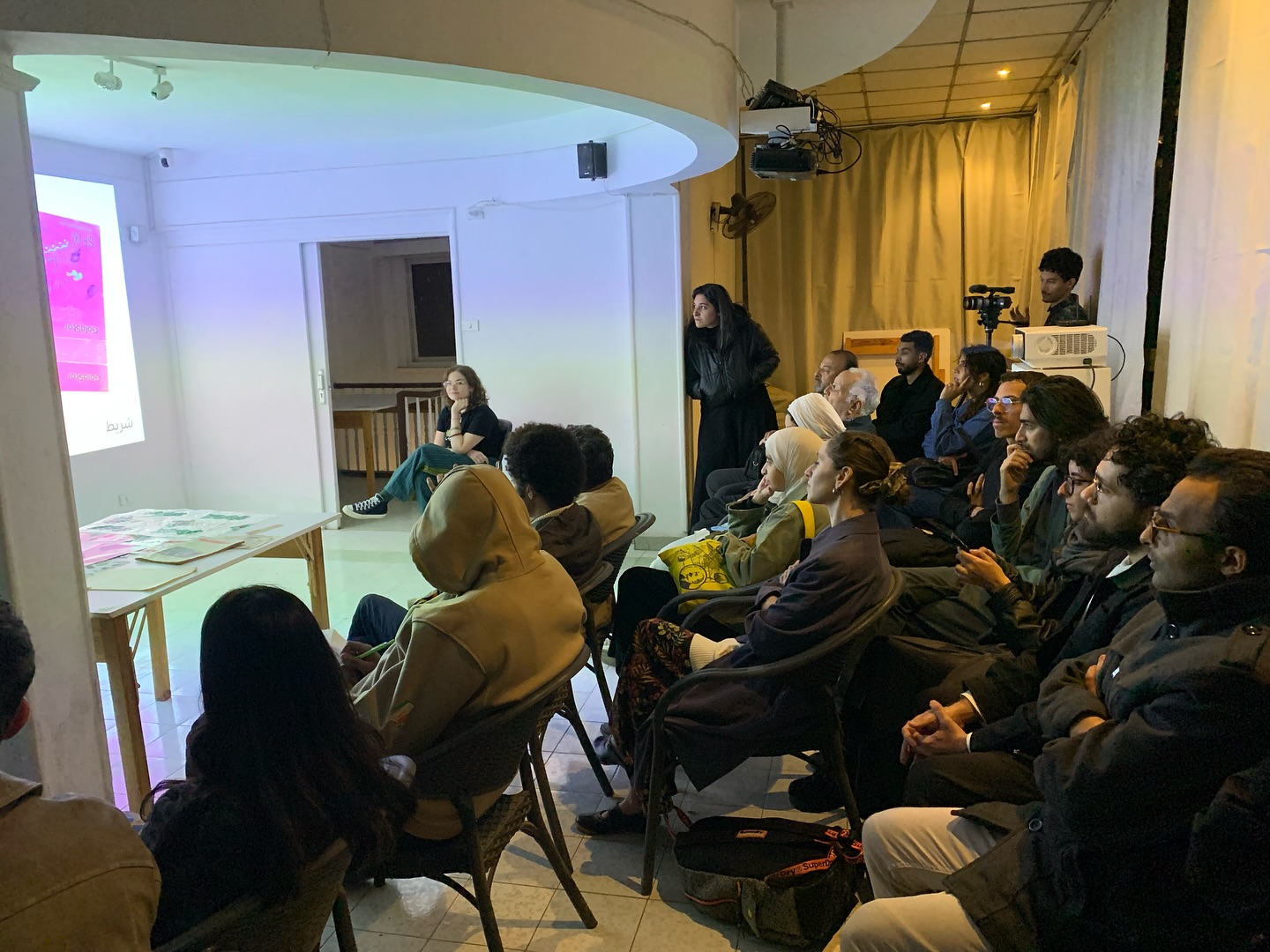

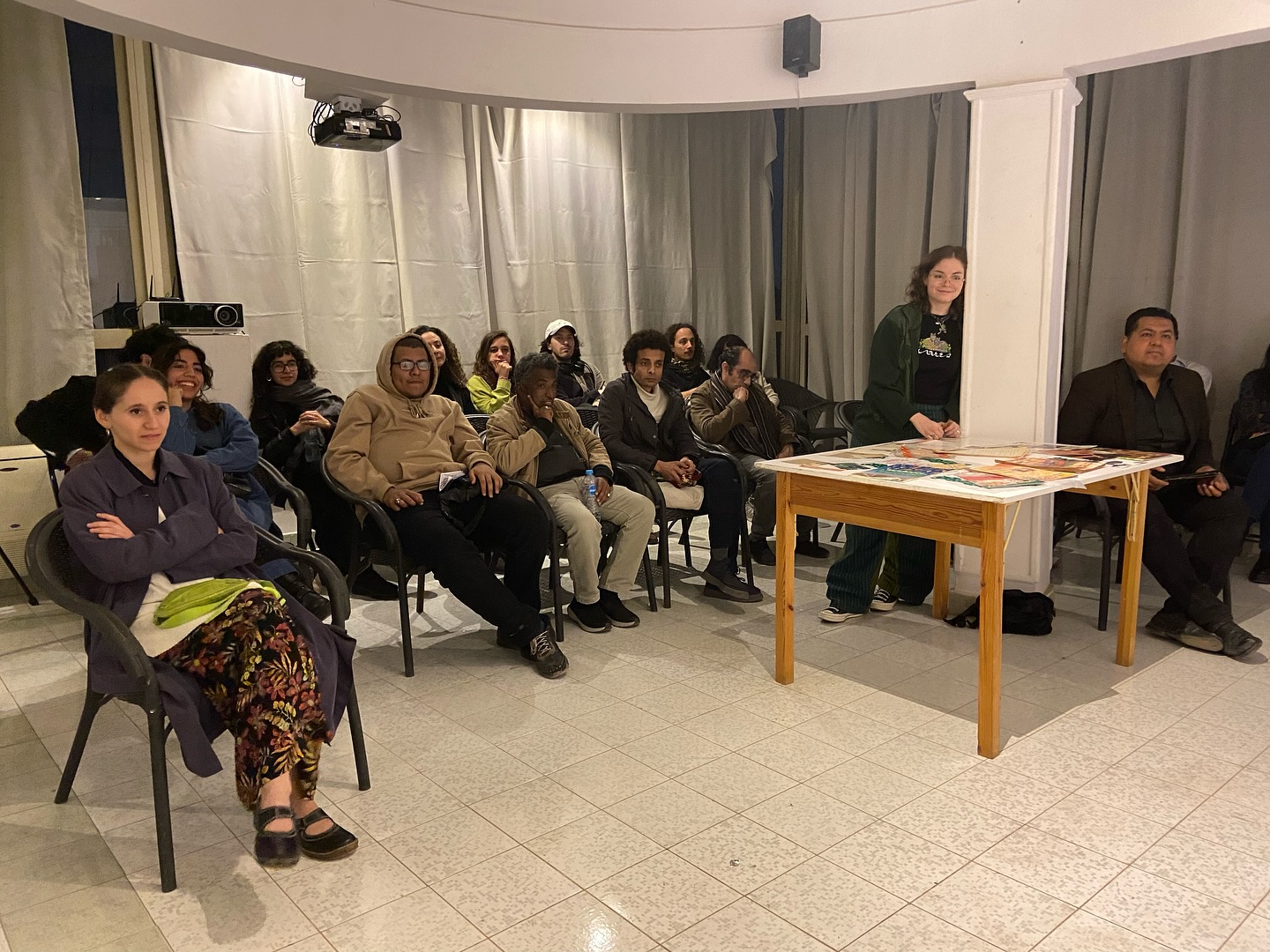
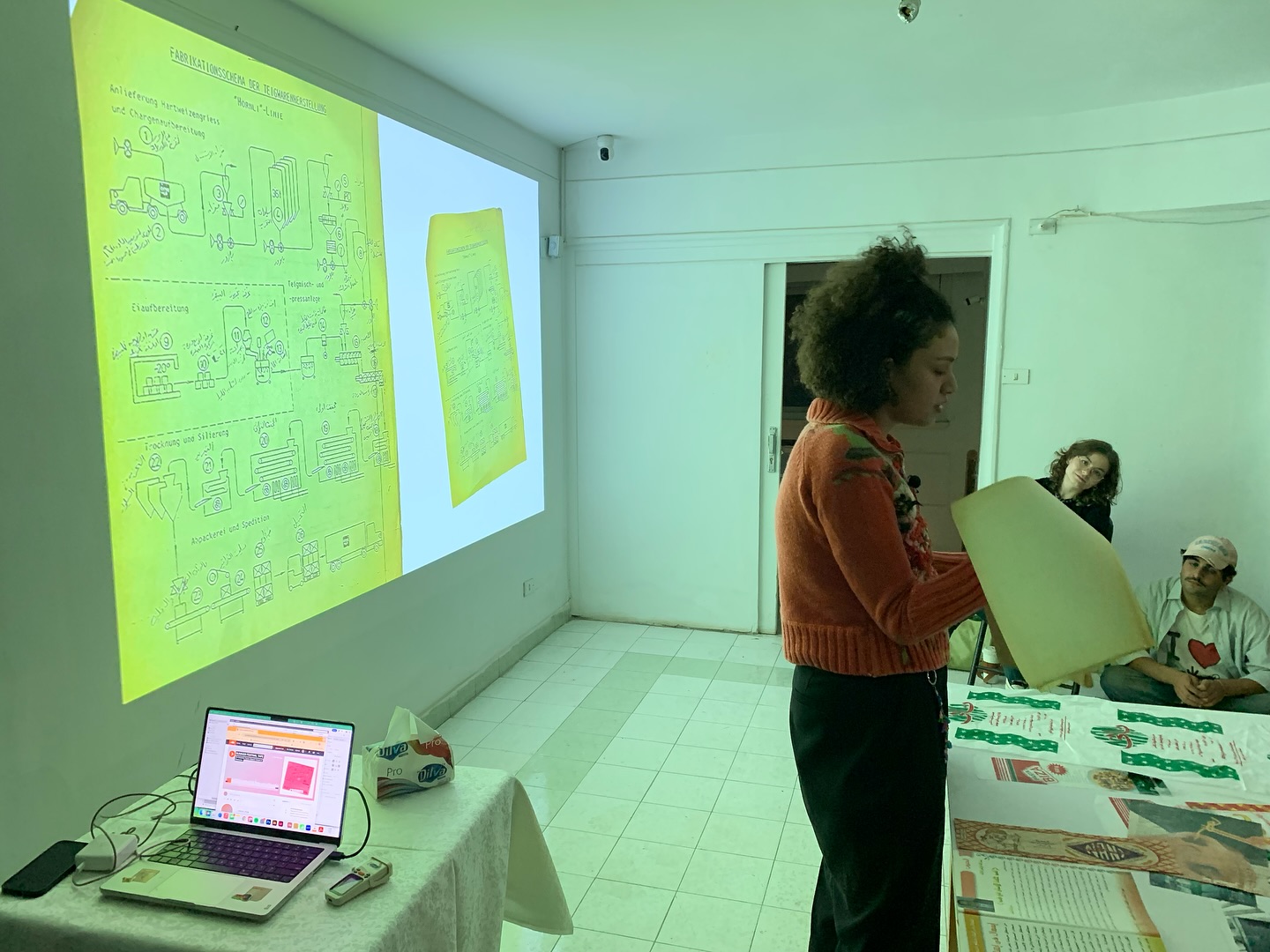
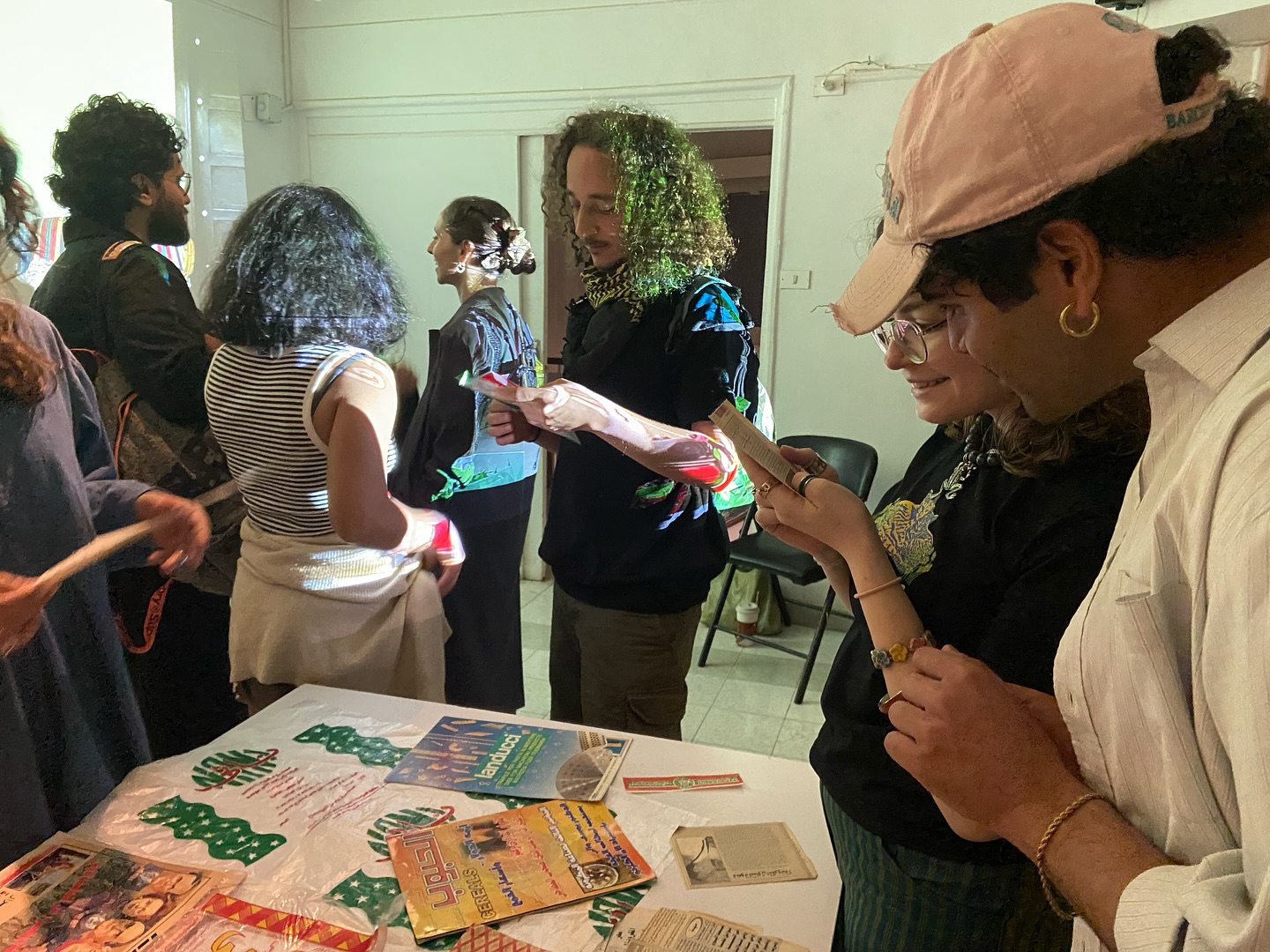



Food & Resistance, a talk by Lujain Khairy
Join Lujain Khairy, a researcher in social studies and political anthropology, for a lecture on the intersection of food and resistance. The talk explores how daily cooking practices and food traditions contribute to public action and political movements. Through comparisons between Egyptian and Tunisian contexts, Lujain examines how food shapes political engagement and resistance, reflecting on its role in social and political change.
Join us on Saturday, 15th of March 2025, at 9 PM in Medrar.
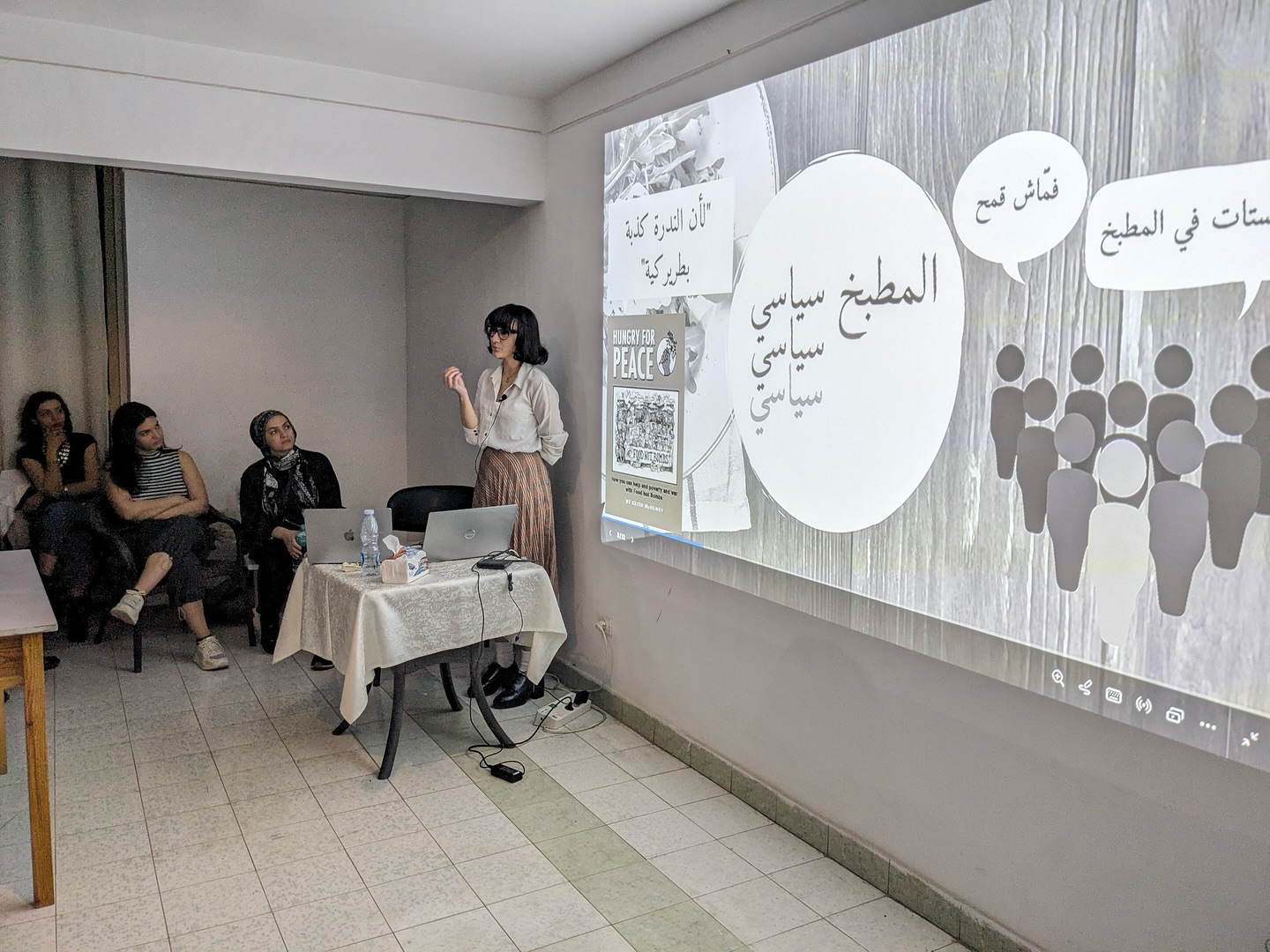


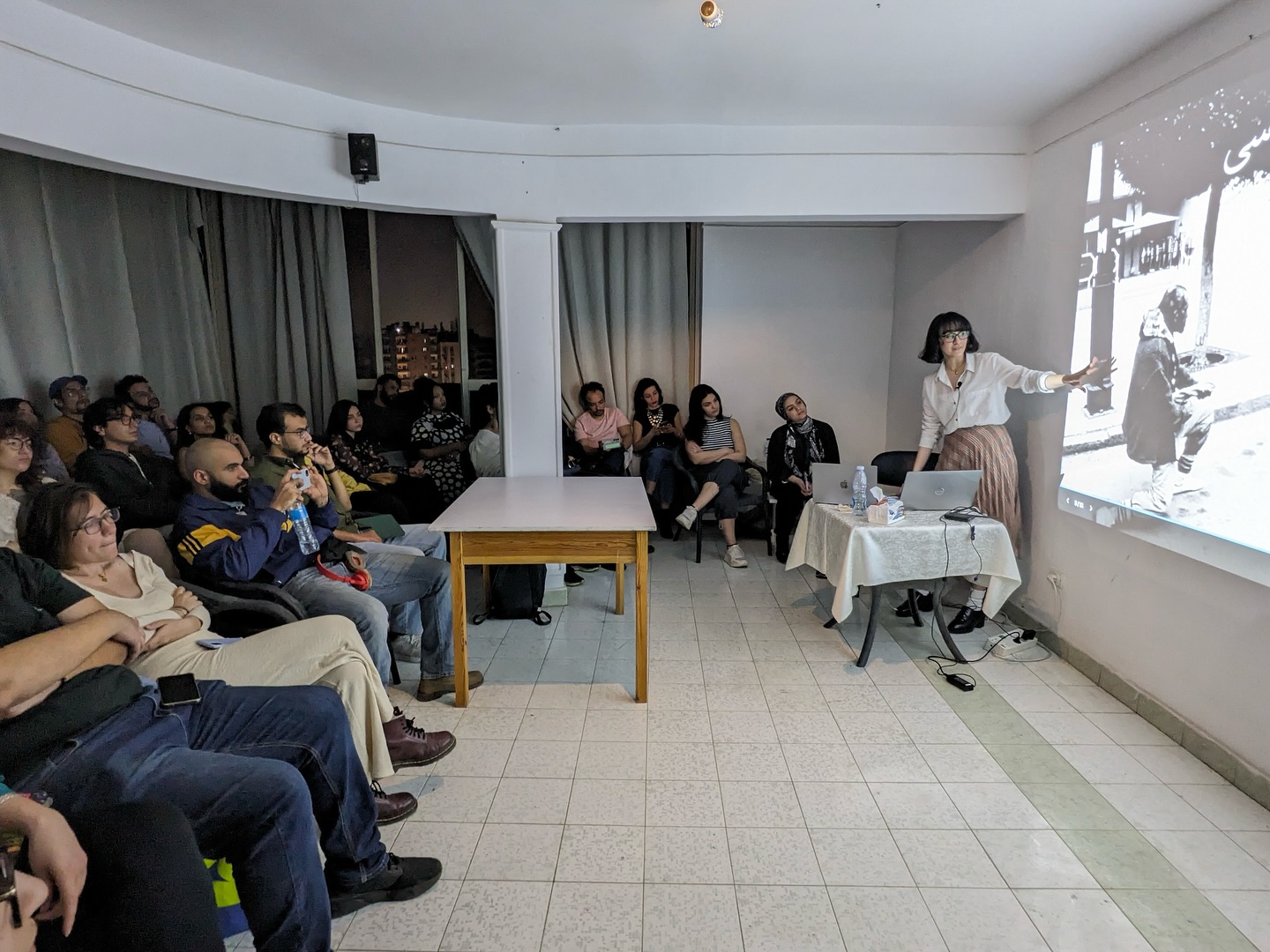

Family Recipes: Cooking Memory and Writing Home in Flour and Grandmother’s Ink
Join us for an interactive talk where Farah Hallaba engages in conversation with Melanie Partamian about her family’s recipe books—their cultural backgrounds, entanglements, and the stories they carry.
An exploration of familial recipes through an anthropological lens, this discussion weaves between Melanie’s grandmothers’ ingredients and the social and political absences and presence(s) within these handwritten archives. And how notes on the margins, not related to food, reflect important aspects of the author’s life. Thinking of the cookbook as a suitcase, allows us to also engage with gender in migratory experience such as Melanie’s family’s.
Next Monday, 17th of March 2025, at 9 PM in Medrar.


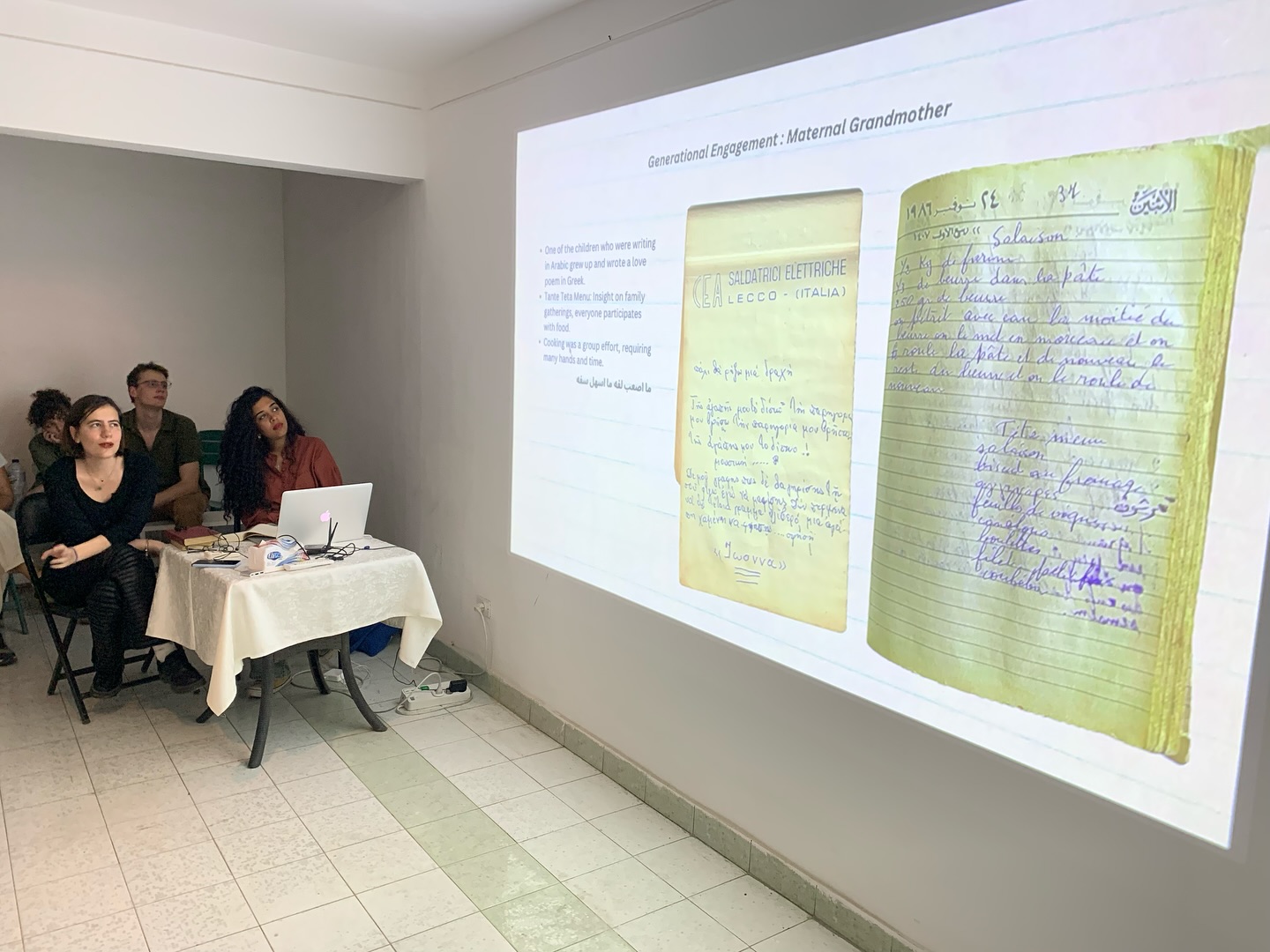
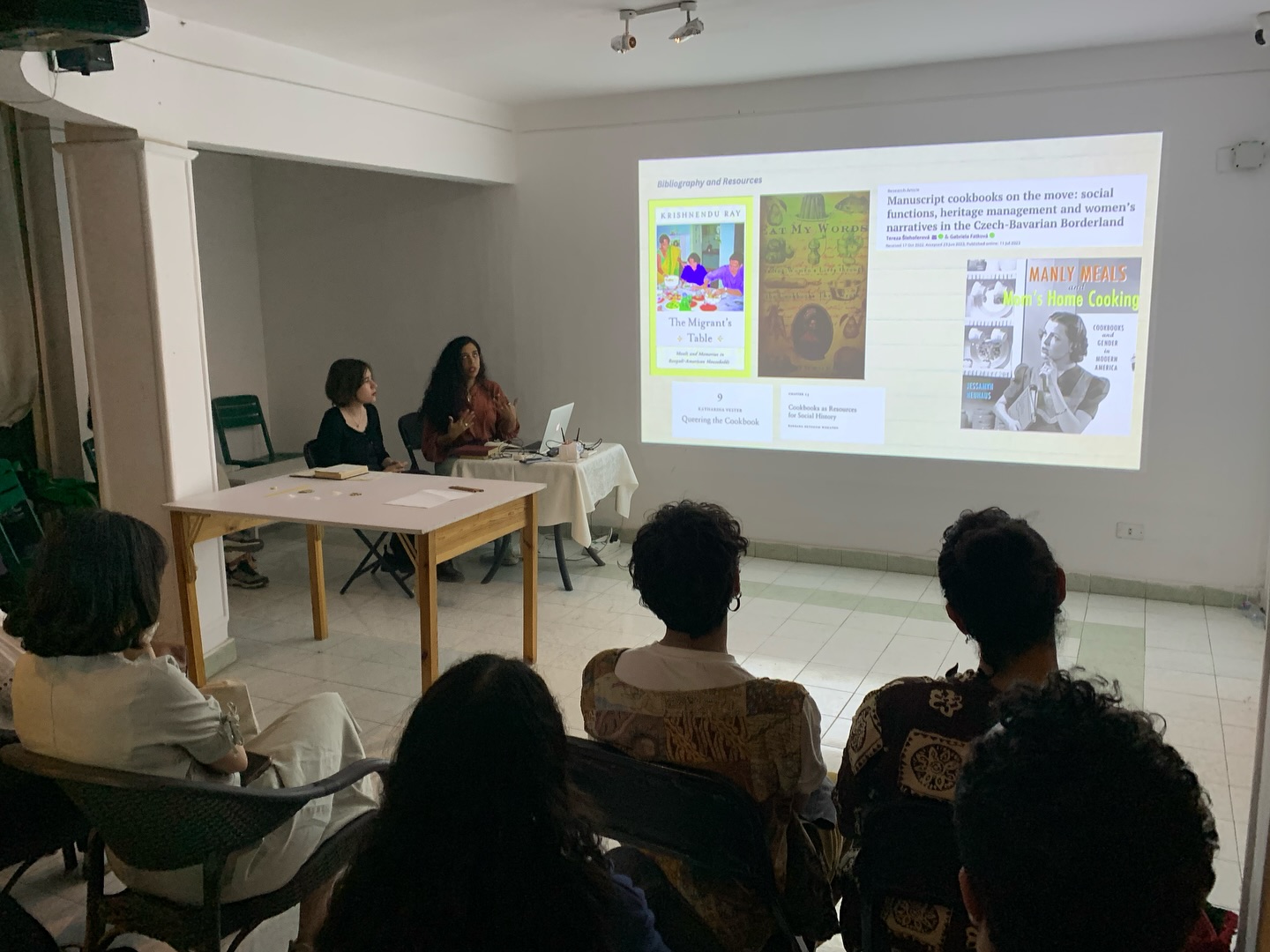

Lentil Narrative: Tracing Food in Literature Talk by Afraa Ahmed & Aziz Morfeq
A talk by Afra Ahmed and Aziz Marfaq exploring traditional cuisines and dietary practices through literary and visual materials, focusing on Yemeni food with its authenticities and cultural influences. The discussion centers on the manuscript Sulafat Al-Adas, a nearly 300-year-old comedic, multi-styled poetic diwan. The verses in this manuscript contain references to everyday life, including dishes, food utensils, and ingredients, which the author employs as literary metaphors. Through examining these references as a case study, the talk explores how Yemeni eating habits and cultural practices are reflected and understood through literature.
Join us on Thursday, 27th of March 2025, at 9 PM in Medrar.







